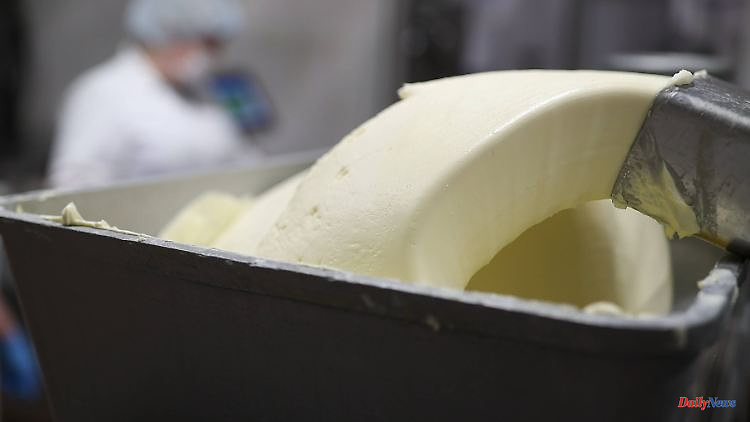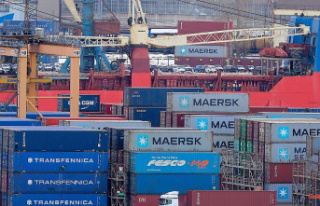For more than two years, the prices of producers in Germany have been rising drastically and incessantly - until last month. In October, producer prices fell again significantly for the first time. Consumers are likely to feel this, too, but not immediately.
The prices of German manufacturers fell last October for the first time in more than two years. Compared to September, they fell by 4.2 percent, as reported by the Federal Statistical Office. However, the level of producer prices remains very high: in October they were 34.5 percent higher than in October 2021, as the statisticians also announced. In August and September, however, this rate of change was still almost 46 percent. The last time producer prices in Germany fell in a monthly comparison was in May 2020 at the height of the Corona crisis.
Producer prices are considered an important indicator for the development of the inflation rate, which is measured using consumer prices. If the producers raise or lower their prices, this usually also affects private households, at least in part. In October, consumer prices were 10.4 percent higher than a year earlier, the highest inflation rate since 1951.
The recent fall in producer prices raises hopes that high inflation may be beginning to peak. "A spectacular decline after all those months of significant price increases," said LBBW economist Jens-Oliver Niklasch. "Perhaps the first sign of some cyclical easing in price pressures."
Similarly, the Commerzbank economist Ralph Solveen estimates. "The inflation rate could increase by the beginning of next year, since the higher energy prices sometimes only reach households with a significant delay," said Solveen. "However, the prices that are already declining significantly at the producer level indicate that this effect should be over in a few months." In addition, state interventions such as the gas and electricity price brake will depress inflation in the coming year.
However, an IFO survey shows that the risk of inflation has not yet been averted. So far, German companies have been slow to pass their increased purchase prices on to their customers, and they have not passed them on in full. According to this, the companies have only passed on 34 percent of their purchase prices in the past few months, as the Munich Institute announced in its survey of 6,500 companies. According to the companies themselves, weak demand, high competitive pressure and long-term contract terms prevented them from raising prices. By April 2023, however, they plan to increase the transmission to 50 percent. "This is likely to lead to further inflationary pressure on consumer prices in the coming months," predicted IFO researcher Manuel Menkhoff.
The main driver of the strong year-on-year inflation at the producer level is energy, which has cost significantly more since Russia invaded Ukraine on February 24th. Here, producer prices were 85.6 percent higher than in October 2021. Compared to the previous month of September, however, energy prices fell by an average of 10.4 percent, "mainly caused by the fall in prices for electricity and natural gas in distribution". as the statisticians pointed out. Light heating oil cost 76.2 percent more than a year earlier, fuel 30.8 percent more. Food was 25.1 percent more expensive than in the same month last year.
The prices for butter (plus 66.3 percent), pork (plus 47.0 percent), cheese and quark (plus 38.3 percent) and milk (plus 36.1 percent) rose particularly sharply. Coffee was 29.1 percent more expensive than in October 2021.












